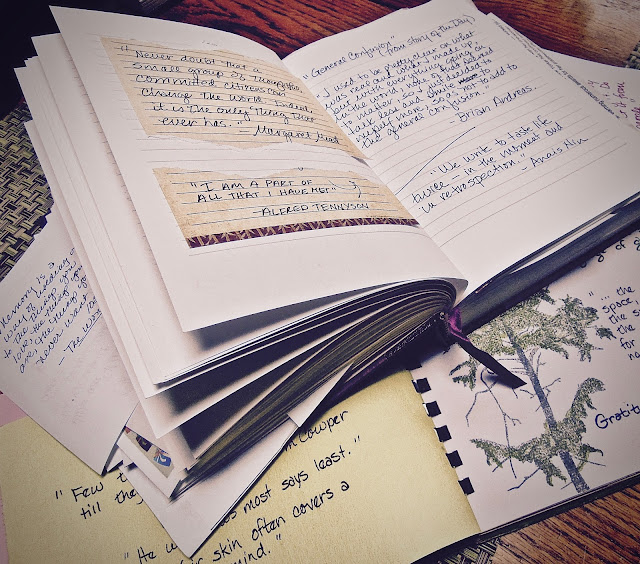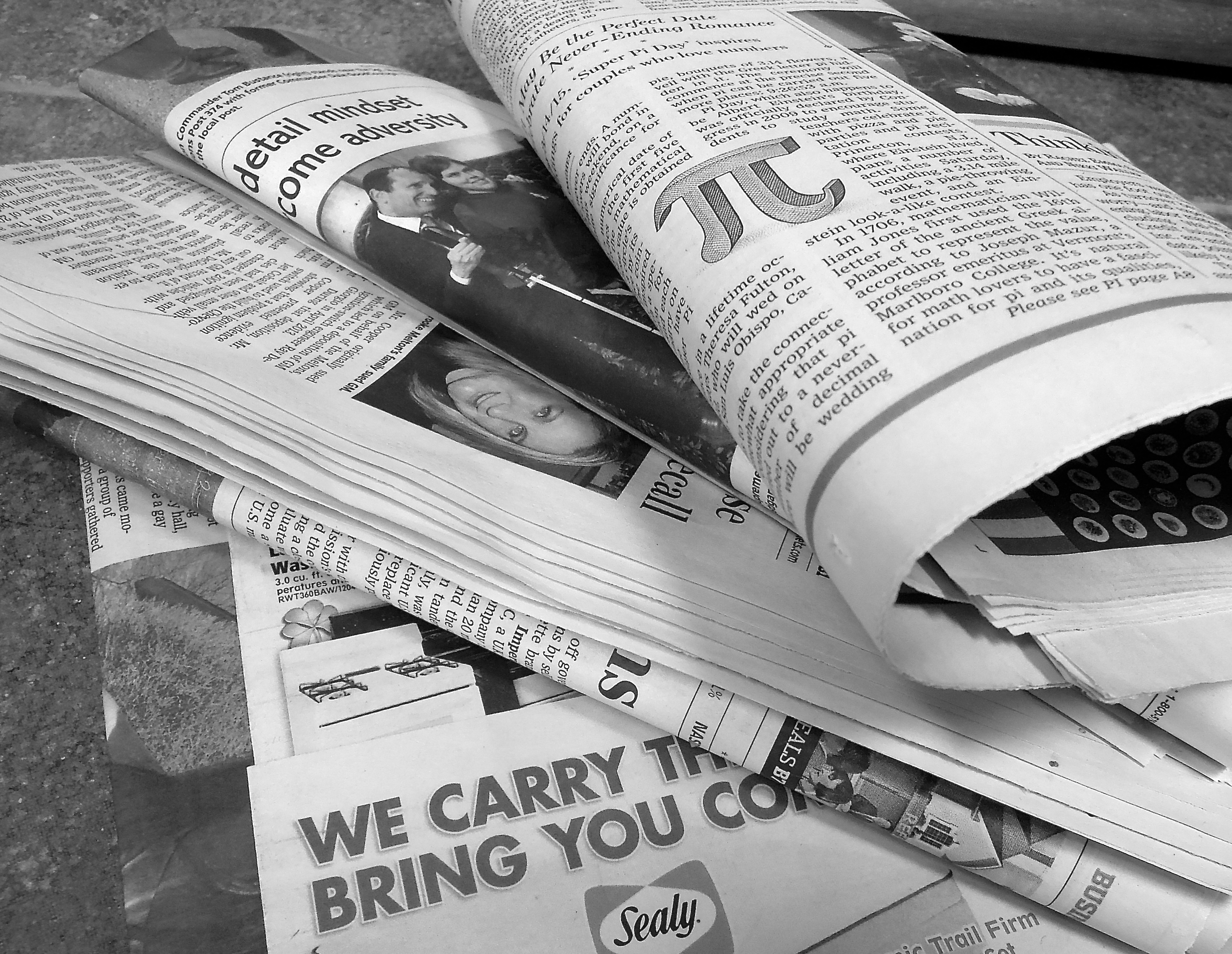Finding the right quote
 |
| My quote journals / Cindy La Ferle |
In my freshman year of college, I started copying favorite passages from books and magazines into a Gwen Frostic journal. Attempting to practice my best handwriting, I penned the quotations with a set of fine-point markers I’d purchased from the campus bookstore. While I didn’t realize it at the time, the quotes I chose often reflected a personal issue I’d been trying to sort out, or validated a belief I’d hoped to strengthen.
That was back in the early 1970s — years before we had personal computers.
I’ve been collecting quotations ever since, accumulating several blank journals and scrapbooks scribbled with lines and pasted with paragraphs that still entertain or inspire me. These days, however, I usually store my new favorites in a computer file.
One of the challenges of using quotations, famous or not, is verifying their authenticity. Borrowing quotes to support or enhance our writing is now a common practice — and it’s not unusual to find misquoted or misattributed material all over the internet. Whenever you stumble on a tempting quote from Mark Twain, Winston Churchill, or Oscar Wilde, for instance, your bogus quote radar should be on high alert. These guys often get credit for saying things they never said.
I’m ashamed to admit I’ve been guilty of misattribution in the past, and I’ve tried to correct my errors whenever possible.
“Many quotes, especially famous quotes, are often misquoted by speakers, politicians, and the media, which sometimes makes it much more difficult to identify an author or a source. Some quotes are also not quotes at all, but proverbs or idioms,” writes Sharon Rickson in “How to Research a Quotation,” an excellent article on the New York Public Library website.
Last year, I purchased an amusing set of notecards made by an artist who’s also fond of quotations. One card featured the following line, attributed to William Shakespeare: “I would challenge you to a battle of wits, but I see you are unarmed.” I loved the quote so much that I wanted to know more about it. In which play did it originate? And what was the context? In college, I was required to read Shakespeare’s famous plays and sonnets, but I couldn’t recall running across that hilarious line.
According to the Quote Investigator, it’s unlikely that Shakespeare wrote the line; there’s not an ink drop of evidence in his oeuvre. Researchers haven’t been able to pinpoint its origin, but the biting insult still makes me smile.
All said and done, I believe that eloquence still matters. And if nothing else, my quote collection proves that the observations and advice of accomplished scholars, statesmen, and authors can transcend time. In a world gone completely mad — and on days when I’m never quite sure what to believe — their messages give me strength for the journey. ~Cindy La Ferle
To view additional content on this blog, please visit the home page of “Things that make me happy.”



0 Comments
Irene
Loved this post!
Things that make me happy
Thank you!